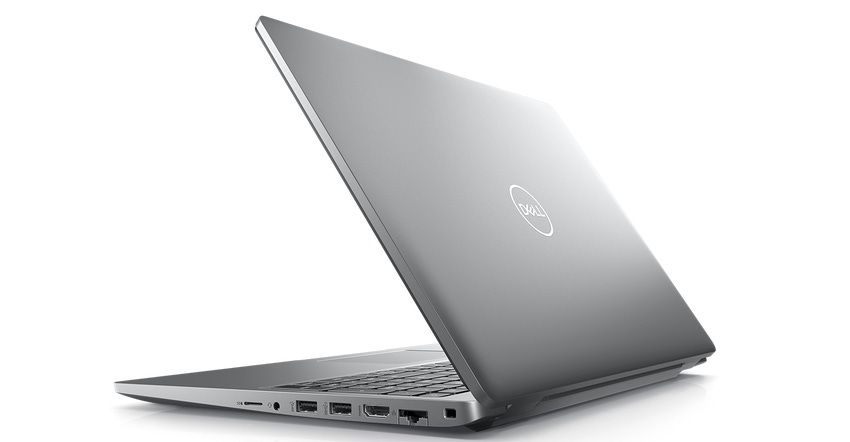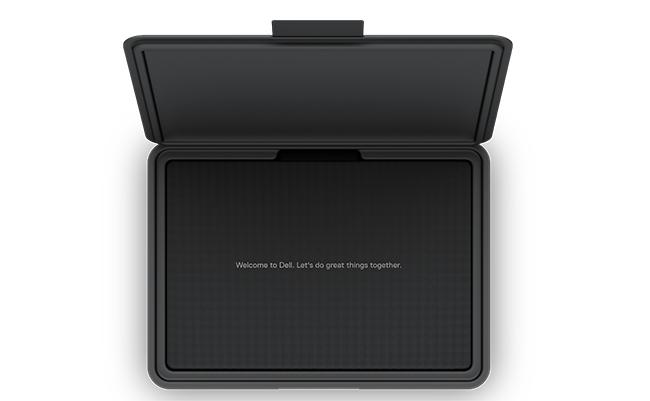The company is incorporating ocean-bound plastics and biobased rubber in its products, and has developed packaging that contains 100% recycled and renewable materials.

Round Rock, TX–based Dell Technologies has scaled up its sustainability efforts by boosting the amount of sustainable plastic and other materials used in its latest Latitude 5000 series laptops and packaging. The Latitude 5000 products are Dell’s best-selling personal computers (PCs).
Product design for the series aligns with Dell’s new Concept Luna program, which aims to reduce environmental impact by accelerating product and material reuse and reducing waste and emissions.
“Over the last decade, Dell introduced a strong lineup of sustainable-material innovations, including several industry-first applications. Dell is now building upon its existing efforts and partnerships with the expansion of new sustainable and renewable materials in more products and platforms — including the Latitude 5000 series,” Page Motes, Dell’s Global Head of Sustainability, told PlasticsToday.
“The Latitude 5000 series plays an important role here. It is our highest-volume PC; therefore, investments in sustainability features help ensure we’re delivering impact at scale,” Motes adds. “This new series offers intentional design choices to increase use of recycled and renewable content — and even expands our use of ocean-bound plastics beyond packaging and into products.”
In the new Latitude 5000 products, Dell uses a laptop lid made from 71% recyclable and renewable materials, including post-consumer recycled polycarbonate (30%), bioplastic upcycled from the paper manufacturing industry (21%), and reclaimed carbon fiber (20%). The base of the machines is also made from reclaimed carbon fiber (20%).
In addition, the laptop fan housing contains 28% recycled, ocean-bound plastic. Dell upcycles ocean-bound polyethene terephthalate (PET) via chemical recycling to produce the polybutylene terephthalate (PBT) used in the fan housing. The two polymers “are similar chemically, so the monomer from PET is used to produce PBT,” Motes explains.
In other parts of its business, Dell uses ocean-bound plastic in the fan housing of its Precision 3000 mobile workstations, and in the fan and fan housing of Dell's OptiPlex Micro desktop computers and Precision workstations. Dell’s EcoLoop Pro backpacks, sleeves, and briefcases feature 100% ocean-bound plastic in the exterior main fabric, as well.
The new Latitude 5000 series laptops have biobased rubber feet made from castor bean oil (39%). The biobased rubber also is used in the bottom bumpers of Dell’s Latitude 7430 and 7530 and Precision 3000 series mobile workstations.
|
Part of the inner packaging for the Latitude 5000 series laptops is made from 100% recycled paper pulp. |
“You’ll hear us often talk about our 2030 moonshot goals,” Motes says. “By the year 2030, for every product we sell, we will reuse or recycle an equivalent product and 100% of our packaging, and half of our product content will be made from recycled or renewable materials.” The recent Latitude 5000 announcement shows “how we are accelerating progress on our packaging goal — with our first packaging made from 100% recycled or renewable materials, which is 100% recyclable.”
The protective (inner) packaging used for the new Latitude 5000 series packaging includes a cushion molded fiber top and bottom, which are 100% recycled paper pulp, and a 100% recycled plastic nonwoven pouch.
“We are at the beginning of a decade-long commitment we set for ourselves. We have more to do, but we are tracking in the right direction across all of our goals,” Motes says. “To accelerate our progress, we are investing in and continuously evaluating initiatives that apply our technology, scale, and talented workforce to address these complex challenges. The impact of these initiatives will have compound effects on our progress as we close in on 2030 and beyond.”
About the Author(s)
You May Also Like





